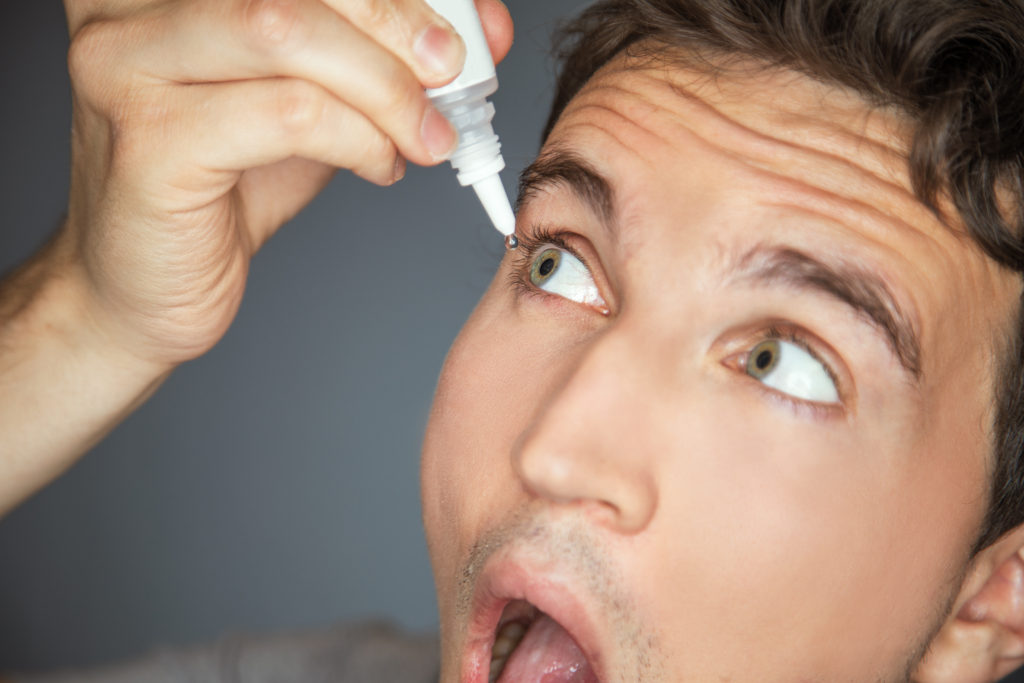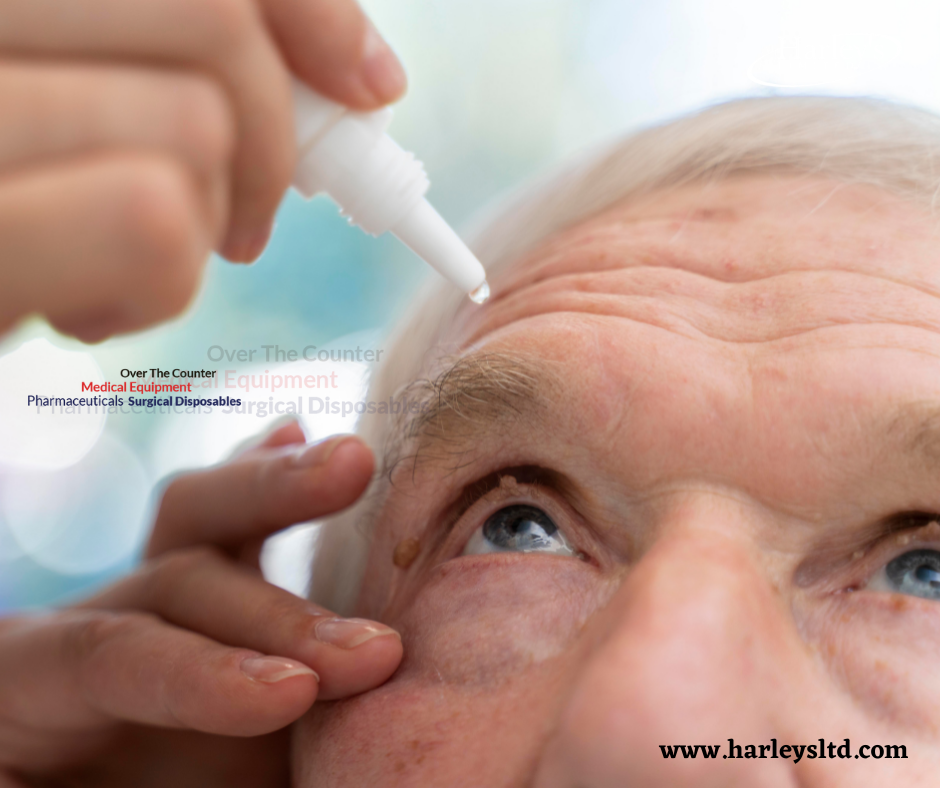Eye drops are actually used for treatment, just like tablets and injections. That’s why it is crucial to treat them with equal care just like other medications.

It is recommended that you don’t miss your doses, cease treatment or fail to use eye drops as prescribed because you can put your vision at risk.
Eye drops are used to treat several eye conditions such as glaucoma, raised eye pressure, conjunctivitis, ocular inflammation, dry eye disease or even allergies.
Some of the eye drops we have that may be prescribed by your preferred ophthalmologist to treat your sore eyes are Pharmasine, Pharmamoicel, Pharmadexgent and Pharmazoxan which was recently rebranded from Ivysine, Ivymoicel, Ivydexgent and Ivyzoxan.
You can find Pharmasine in our e-shop here which helps clear redness of the eye due to fatigue, soreness of the eyes and dust/pollen/chemical irritants in the environment. For the rest, you must obtain a prescription from your doctor who will recommend where to find the medication that will treat your ailment.
Below are 6 tips compiled by an ophthalmologist that will be useful when using eye drops.
- Always check the label
It’s astonishing how numerous individuals mistakenly put something other than eye drops into their eye. It’s even more common for eye drops bottles to be confused with ear drops or even small bottles of glue. The subsequent harm can be quite severe if the contact results in a chemical burn to the eye.
- Do not apply eye drops when wearing contact lenses
It might seem obvious but most people forget or don’t see the need to remove their contact lenses before putting in their eye drops. What contact lenses do is interfere with the dispersal of the drops, reducing their efficacy.

- Apply a drop at a time then wait a few minutes before applying the next drop
If the label instructs that you apply two drops, don’t apply them both at the same time. Apply one drop, then wait at least 2 minutes before applying the next drop. When you put in eye drops in quick succession, what happens is that the first drop is pushed out of the eye without having had a chance to work. Therefore, this means that you will have wasted the medication or reduced its efficiency in treating your eye(s).
- Don’t blink your eye strenuously after applying the eye drop
Try as much as possible to blink normally or lightly. Close your eyes to avoid pushing the drop out of your eye.
- Try to keep the drop in your eye to minimize side-effects
Apply pressure on the lower tear ducts (found next to the bridge of the nose) to minimize the amount of eye drop entering the bloodstream – this largely reduces the potential for any side-effects from the eye drop that would affect the rest of the body. In addition, remember to wipe away the excessive liquid with a piece of tissue to decrease potential irritation of the surrounding skin.
- Don’t allow the tip of the eye drop bottle touch your eye
If this happens, there’s a high chance of getting an eye infection because bugs from the eye may contaminate the eye drop solution.

If you are having a hard time applying eye drops, ask a family member or friend to help.
Reference
Sherwin, D. (2019). Why it’s important to use your eye drops correctly. Retrieved 4 February 2022, from https://visioneyeinstitute.com.au/eyematters/why-its-important-to-use-your-eye-drops-correctly/

